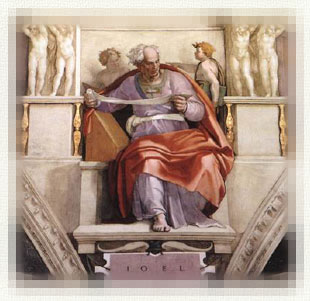
The Relevancy & Implications of John Calvin's Teachings
No one can deny the awesome extent of John Calvin's teachings (1509-1564). It is difficult to lay a finger on the beginning or end of his influence, since much of it overlaps the influence of the gospel, as well as protestantism and the ideologies of the Rennaisance.
However, it is just this point which makes Calvin's teachings so relevant. The Rennaisance owes much of its "discoveries" to the proper humanities of the Reformation. For this reason, Luther, the German Reformer, was called a Humanist...not in the sense that we now think of, but because he understood that every man (and woman) has a personal obligation to God, which cannot be fulfilled by an earthly mediator (aka: a priest).
If volume and widespread translation mean anything (they don't always), Calvin is certainly relevant, since he wrote over three massive volumes of sermons, a treatise on The Christian Life, one entitled On Prayer - A Perpetual Exercise of Faith. The Daily Benefits Derived From It, Institutio Christianae Religionis (Institutes of the Christian Religion), four volumes on the Harmony of the Law, commentaries on forty books of the Bible, and sundry other volumes which have reaffirmed the Orthodox views of the Scripture, and the foundations for much of Christendom today.However, it is something else entirely, which makes Calvin so relevant for Christendom today...The spirit of Zwinglianism reached its fullest development in the theological principles, political theories, and ecclesiastic thought of John Calvin.
Perhaps even more so than Martin Luther, Calvin envisioned and wrought the framework that would come to dominate Western culture, even into the twenty-first century. Our own culture, staggeringly so, is decidedly Calvinistic in some form or another; thus, at the centre of the way we think and act, you will find the indominable spirit of this fiery reformer.
And, while the controversy rages over Calvin's teachings, even among those of like denominations, the key to understanding his importance lies in the Scriptures. At the heart of all that he taught, was the premis Sola Scriptura; The Scriptures Alone, or The Scriptures Alone Suffice.With this premise, the structure for society, the church, and political authority could be properly understood and applied, Calvin maintained, though fiercely opposed by those (like Luther) who argued that all which was not expressly forbidden in Scripture was to be allowed.
Was this, perhaps the reason that Calvin's influence is still felt today...or was it the fact that he bowled on the Sabbath?
(See: Calvin in the Hands of the Philistines: Or, Did Calvin Bowl on the Sabbath? By Chris Coldwell)



